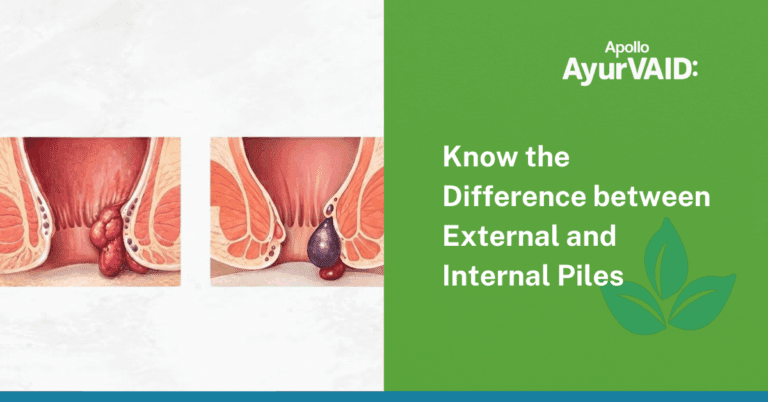Introduction
Even though you have been taking your thyroid medicines regularly, do you still find it difficult to lose weight? Are hair fall, fatigue, and constipation bugging you? Well, don’t fret because you are not alone. Many people continue facing the symptoms of hypothyroidism even after taking hormonal pills. In this blog, we will explore hypothyroidism, how medication plays a role in it, and how you can reduce your dependency on hormonal pills. We will also touch upon how to prevent hypothyroidism through lifestyle and dietary changes. Let us help you in finding other practical ways that will help you maintain your overall wellness even as you deal with hypothyroidism.

What is Hypothyroidism?
Thyroid gland, a butterfly shaped organ is responsible for many metabolic processes in our body. Hypothyroidism is a condition in which the thyroid is underactive and hence affects the body’s functions leading to a range of symptoms including weight gain, hair fall, fatigue, mood disturbances, dry skin, constipation, goiter, depression and reduced libido. It is usually diagnosed by a Thyroid function test, which might show normal or low levels of T3 and T4 and high levels of TSH.
In Ayurveda, thyroid issues are attributed to dysfunction of Dhatwagni with Vitiation of Vata and Kapha dosha. These imbalances might occur due to various factors like unhealthy diet, stress, irregular sleep, or disruptions in the body’s natural rhythms. When these factors disrupt the dosha balance, they can affect the functioning of the thyroid gland, impacting agni and overall well being.
Conventional treatment relies on hormone replacement therapy that can cause weight gain, sensitivity to heat or changes in menstrual cycles. At AyurVAID, we follow an evidence based protocol for managing Hypothyroidism, that involves a whole-person approach to restore Agni functions and reset metabolism through hypothyroid treatment, panchakarma therapies, personalized diet and lifestyle recommendations. This can help toreduce the dosage of thyroid medicines and help you avoid Thyroidectomy.
Causes of Hypothyroidism
Here are the causes of Hypothyroidism:
- Autoimmune Disease (Hashimoto’s Thyroiditis):
The most common cause, where the immune system mistakenly attacks the thyroid gland, leading to reduced hormone production. - Iodine Deficiency:
Lack of iodine in the diet affects hormone synthesis, leading to an underactive thyroid. - Thyroid Surgery:
Removal of all or part of the thyroid gland can reduce or stop thyroid hormone production. - Radiation Therapy:
Radiation to the neck or chest area may damage thyroid cells and impair function. - Certain Medications:
Drugs like lithium, interferon, or amiodarone may interfere with thyroid hormone production. - Congenital Hypothyroidism:
A condition where a baby is born without a fully developed or functional thyroid gland. - Pituitary Gland Dysfunction:
When the pituitary gland doesn’t produce enough TSH, the thyroid doesn’t get the signal to make hormones. - Postpartum Thyroiditis:
Inflammation of the thyroid after childbirth can temporarily or permanently reduce hormone levels. - Chronic Illness or Stress:
Long-term illness or severe stress may affect thyroid function and hormone balance.
Ayurvedic Treatment for Hypothyroidism
- Herbal Remedies:
- Ashwagandha (Withania somnifera):
Helps support thyroid hormone production and reduces stress.
Dosage: 250–500 mg twice daily after meals with warm water or milk. - Guggulu (Commiphora mukul):
Boosts metabolism and supports thyroid function.
Dosage: 250 mg–500 mg twice daily after meals. - Brahmi (Bacopa monnieri):
Enhances mental clarity and helps with fatigue and sluggishness.
Dosage: 1–2 tsp of Brahmi juice or 250 mg capsule once daily. - Kanchanar Guggulu:
Classical Ayurvedic formula used for hormonal balance and glandular detoxification.
Dosage: 1–2 tablets (250 mg each), twice daily after meals with warm water.
- Panchakarma Therapy (if advised by an Ayurvedic practitioner):
These are detoxification treatments to cleanse and balance the doshas:
- Virechana (Therapeutic Purgation) – to balance Pitta.
- Basti (Medicated Enemas) – to regulate Vata.
- Nasya (Nasal Therapy) – to clear toxins affecting brain and endocrine functions.
- Diet and Lifestyle:
- Diet:
- Eat warm, easily digestible, freshly cooked meals.
- Include whole grains, vegetables like carrots, beets, and spinach.
- Avoid processed, cold, and oily foods.
- Use spices like turmeric, ginger, cumin, and coriander.
- Daily Routine (Dinacharya):
- Wake up early (preferably before sunrise).
- Practice gentle yoga and pranayama (especially Bhramari and Anulom Vilom).
- Maintain a fixed eating and sleeping schedule.
- Stress Management:
- Practice meditation or mindfulness daily.
- Abhyanga (daily warm oil massage) with sesame or medicated oil to calm Vata.
Lifestyle & Daily Practices for Hypothyroidism
Even with regular thyroid medication, many people continue to experience fatigue, weight gain, constipation and low mood. This is where lifestyle and daily habits play an important role. Ayurveda focuses on strengthening Agni, balancing Vata and Kapha and removing accumulated toxins, while modern medicine highlights sleep, stress control and proper nutrition. Combining both approaches helps improve energy, digestion and hormone balance.
1. Start Your Day Warm
Begin your morning with warm water to gently activate digestion. You can add a small amount of ginger to support metabolism and help clear sluggishness.
2. Eat Fresh, Warm and Balanced Meals
Ayurveda recommends freshly cooked meals that are easy to digest. Include warm vegetables, whole grains, dals and light soups. Avoid cold, raw and processed foods as they slow metabolism and increase Kapha.
3. Support Digestive Fire (Agni)
Use mild spices such as ginger, cumin, black pepper, cinnamon and turmeric in your meals. These help keep Agni strong, which is essential for better metabolism and thyroid function.
4. Follow Regular Meal Timings
Eat your meals at the same time every day. Lunch should be the heaviest meal, eaten when digestion is strongest. Keep dinner early and light to prevent heaviness and morning fatigue.
5. Keep Your Body Active
Daily movement helps reduce stiffness, improve metabolism and balance Kapha. Brisk walking, yoga, stretching and light strength exercises are ideal. Even 20–30 minutes a day can make a noticeable difference in energy levels.
6. Prioritize Restful Sleep
Aim for 7–8 hours of sleep every night. Go to bed and wake up at consistent times to support hormone balance. Poor sleep increases fatigue and worsens thyroid symptoms.
7. Manage Stress Mindfully
Chronic stress disturbs Vata and weakens Agni. Practice deep breathing, meditation or gentle yoga. Even ten minutes of quiet time can help calm the mind and support thyroid health.
8. Include Self-Massage (Abhyanga)
A warm oil massage using sesame oil calms the nervous system, improves circulation and reduces dryness. This also helps improve sleep and reduce fatigue.
Precautions in Hypothyroidism
Managing hypothyroidism is not just about medication. Ayurveda emphasizes balancing your body’s energies (doshas), supporting digestion (Agni), and keeping toxins (Ama) under control. Here are some simple precautions:
Eat warm, freshly cooked meals
Avoid cold, raw, or heavy foods like ice-cold drinks, fried items, and junk food. They can slow digestion and increase Kapha, making fatigue and weight gain worse.Maintain regular meal timings
Skipping meals or eating at irregular hours weakens your Agni. Eat at consistent times and make lunch your main meal. Keep dinner light and early.Limit raw or hard-to-digest foods
Raw salads, sprouts, and cold smoothies are tough on sluggish digestion. Lightly cooked vegetables and soups are easier to digest.Avoid day-time naps
Sleeping during the day can increase Kapha and make you feel sluggish. Focus on proper night-time sleep instead.Manage stress daily
Stress disturbs Vata and slows metabolism. Practice gentle yoga, pranayama, or meditation for at least 10–15 minutes each day.
Home Remedies & Diet to Manage Hypothyroidism
Along with medicines, Natural Remedies for Hypothyroidism can help you keep thyroid levels under control:
- Exposure to sun: People with deficiency of Vitamin D are more prone to develop thyroid imbalances. Daily exposure to the sun for about 10-15 minutes can provide you with an adequate amount of Vitamin D. Egg yolks, dairy products and oranges are good sources of Vitamin D.
- Eat a healthy diet: Avoid junk food and consume a healthy diet.
- Vitamin B: Consume a diet rich in Vitamin B12, including Fish, eggs and nuts.
- Selenium & iron : A diet deficient in iron and selenium can affect functioning of Thyroid. Consume sunflower seeds, brazil nuts and legumes for selenium and green leafy vegetables for iron.
- Regular Exercise: Engaging in physical activity for at least 30 minutes a day can help regulate thyroid function, improve metabolism, and reduce stress levels, which can otherwise worsen thyroid imbalances.
- Iodine Intake: Iodine is essential for thyroid hormone production. Include iodine-rich foods like iodized salt, seaweed, dairy, and eggs in your diet. However, those with hyperthyroidism should monitor their iodine intake carefully.
- Zinc-Rich Foods: Zinc plays a key role in thyroid hormone production. Add foods like pumpkin seeds, chickpeas, cashews, and whole grains to your meals to support thyroid function.
- Stay Hydrated: Drinking plenty of water helps maintain metabolism and aids overall thyroid health by flushing out toxins from the body.
- Avoid Goitrogens in Excess: Certain foods like broccoli, cauliflower, and cabbage can interfere with thyroid function when eaten raw in large amounts, especially in those with hypothyroidism. Cooking these vegetables can reduce their goitrogenic effects.
- Manage Stress: Chronic stress can worsen thyroid imbalances. Incorporate relaxation techniques such as yoga, meditation, or deep-breathing exercises into your routine.
- Magnesium Intake: Magnesium supports various bodily functions, including thyroid health. Include magnesium-rich foods like dark chocolate, avocados, bananas, and nuts.
- Avoid Smoking and Excess Alcohol: Both can negatively affect thyroid function and overall hormone balance.

Conclusion
Managing hypothyroidism goes beyond just relying on hormonal pills. Despite taking thyroid medications regularly, many individuals still struggle with symptoms such as weight gain, hair fall, fatigue, and constipation. Understanding the root causes and utilizing a holistic approach can be key in reducing dependency on medication. By addressing imbalances in Dhatwagni, Vata, and Kapha dosha through Ayurveda principles, you can work towards restoring your body’s natural rhythms and promoting overall wellness. At AyurVAID, our evidence-based protocol focuses on restoring Agni functions, resetting metabolism, and offering personalized treatments to manage hypothyroidism effectively.






